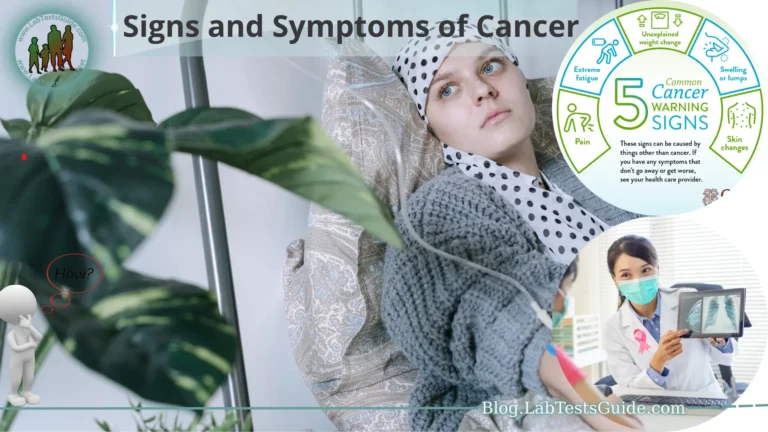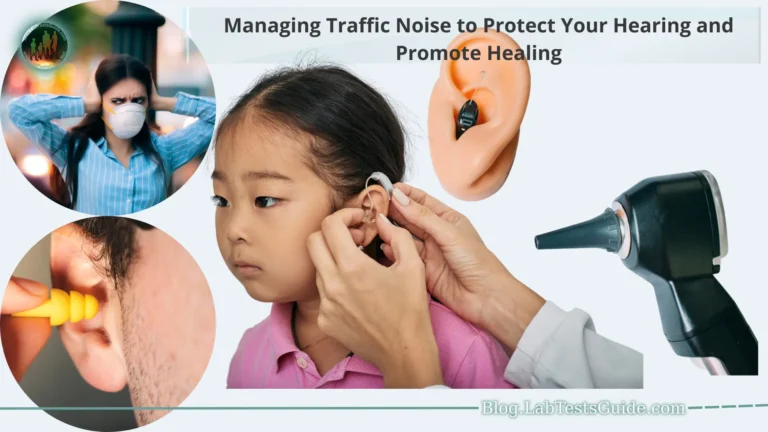Hair loss is a common concern that affects millions of people worldwide. While various factors can contribute to hair thinning and baldness, stress has emerged as a significant trigger for hair loss in recent years. Stress-related hair loss, also known as telogen effluvium, occurs when emotional or physical stress disrupts the normal hair growth cycle, pushing more hair follicles into a resting phase. As a result, individuals experience excessive shedding and noticeable hair thinning.

Understanding the relationship between stress and hair loss is crucial for adopting effective preventive measures and managing the condition. This guide aims to explore the stress related hair loss, identify early signs of stress-induced hair thinning, and provide comprehensive strategies to prevent and manage hair loss caused by stress. By combining lifestyle changes, stress reduction techniques, proper nutrition, and professional support, individuals can take proactive steps towards maintaining healthy hair and overall well-being.
What Is Stress-Related Hair Loss?
- Definition: Stress-related hair loss, also known as telogen effluvium, is a type of temporary hair loss condition that occurs due to physical or emotional stress. It is characterized by excessive shedding and thinning of hair.
- Hair Growth Cycle Disruption: Normally, hair goes through a growth cycle that includes a growth phase (anagen), a transitional phase (catagen), and a resting phase (telogen). Stress can push a significant number of hair follicles into the telogen phase prematurely, leading to increased hair shedding.
- Trigger Factors: Stress-related hair loss can be triggered by various factors, such as traumatic events, emotional distress, chronic illness, sudden weight loss, surgery, or hormonal changes (e.g., childbirth, menopause).
- Delayed Onset: Hair loss due to stress may not become apparent immediately. There is usually a delay of a few weeks to a few months between the triggering event and the onset of noticeable hair shedding.
- Temporary Nature: The good news is that stress-related hair loss is usually temporary. Once the underlying stressor is addressed or eliminated, and the body’s stress levels return to normal, hair growth typically resumes within a few months.
- Diffuse Hair Thinning: Unlike pattern hair loss (androgenetic alopecia), stress-related hair loss is characterized by overall thinning of the hair rather than receding hairlines or bald spots.
- Self-Limiting Condition: In most cases, stress-induced hair loss resolves on its own without the need for medical intervention. However, adopting healthy practices and reducing stress can expedite the recovery process.
- Consultation with Professionals: If hair loss persists or becomes a significant concern, consulting a dermatologist or trichologist can help rule out other potential causes and provide personalized guidance on managing stress-related hair loss.
- Emotional Impact: Coping with hair loss can be emotionally challenging. It is essential to address the emotional aspects of hair loss and seek support from friends, family, or support groups.
- Holistic Approach: Combining stress reduction techniques, a balanced diet, proper hair care practices, and seeking professional help can play a vital role in preventing and managing stress-related hair loss effectively.
How to Manage Stress-Related Hair Loss:
Here are some effective strategies to manage stress-induced hair loss.
- Identify and Address Underlying Stressors: Recognize the sources of stress in your life and take proactive steps to address them. This may involve making lifestyle changes, setting realistic goals, seeking support, or professional counseling.
- Practice Stress Reduction Techniques: Incorporate relaxation techniques into your daily routine to reduce stress levels. Meditation, mindfulness, deep breathing exercises, yoga, and tai chi are some effective practices that can help calm the mind and body.
- Exercise Regularly: Engage in physical activity regularly as it releases endorphins, the “feel-good” hormones that can counteract stress. Aim for at least 30 minutes of moderate exercise most days of the week.
- Maintain a Balanced Diet: Ensure you’re getting a well-balanced diet with plenty of vitamins, minerals, and protein to support hair health. Include foods rich in antioxidants, such as fruits, vegetables, and nuts.
- Stay Hydrated: Drink an adequate amount of water daily to keep your body hydrated, which is essential for healthy hair growth.
- Choose Gentle Hair Products: Use hair care products that are gentle on the scalp and avoid harsh chemicals that may exacerbate hair loss. Look for sulfate-free shampoos and conditioners.
- Avoid Tight Hairstyles: Refrain from hairstyles that pull on the hair, such as tight ponytails, braids, or buns. Opt for looser styles to reduce hair follicle strain.
- Incorporate Scalp Massages: Regularly massage your scalp with gentle circular motions to stimulate blood circulation and promote hair growth.
- Protect Hair from Environmental Stressors: Shield your hair from harsh environmental factors like excessive sunlight, chlorine, and pollution that can weaken the hair.
- Consult a Professional: If you experience persistent or severe hair loss, consult a dermatologist or trichologist. They can diagnose the specific cause of hair loss and recommend appropriate treatments or medications.
- Address Emotional Impact: Dealing with hair loss can be emotionally challenging. Seek emotional support from friends, family, or join support groups to connect with others experiencing similar issues.
- Be Patient: Remember that stress-related hair loss is usually temporary, and it takes time for hair follicles to recover and regrow. Be patient and consistent with your stress management and hair care efforts.
Identifying Stress-Induced Hair Loss:
Here are some key points to help you recognize stress-related hair loss.
- Increased Hair Shedding: One of the primary signs of stress-induced hair loss is a noticeable increase in hair shedding. You may find more hair on your pillow, in the shower drain, or on your hairbrush than usual.
- Diffuse Hair Thinning: Unlike pattern hair loss that tends to affect specific areas (such as the hairline or crown), stress-induced hair loss typically leads to overall hair thinning. You may notice that your hair appears less dense and lacks volume.
- Sudden Onset: Stress-related hair loss often has a sudden onset, and you may be able to trace it back to a specific stressful event or period in your life, such as a traumatic experience, major life changes, or a particularly stressful situation.
- Telogen Effluvium Flare-Up: Telogen effluvium can be triggered or exacerbated by certain events or factors, such as surgery, childbirth, significant weight loss, illness, or emotional stress. If you have experienced any of these events recently, it might contribute to hair shedding.
- Hair Texture Changes: Stress-induced hair loss may lead to changes in hair texture, making it look dull, dry, or lifeless. The hair may also become more prone to breakage.
- Absence of Scalp Redness or Scaling: Unlike some scalp conditions like scalp psoriasis or seborrheic dermatitis, stress-related hair loss typically does not cause scalp redness, flaking, or itching.
- Excessive Hair Loss When Touching or Styling: If you notice that a considerable amount of hair comes out when you touch or style your hair, it may be an indicator of stress-related hair shedding.
- Emotional Stressors: Pay attention to your emotional well-being. Stress-induced hair loss is often linked to significant emotional distress, anxiety, or depression.
- Duration of Hair Shedding: Telogen effluvium is a temporary condition, and the excessive hair shedding usually lasts for several months before gradually subsiding.
- Pattern of Hair Loss: In stress-related hair loss, hair typically falls out in a diffuse pattern rather than in specific areas as seen in other forms of hair loss.
The Link between Stress and Hair Loss:
Here are some key points that explain the connection between stress and hair loss.
- Telogen Effluvium: The most common type of hair loss associated with stress is telogen effluvium. During times of stress, a large number of hair follicles can prematurely enter the telogen (resting) phase of the hair growth cycle. This leads to a significant increase in hair shedding as the affected hairs are pushed out to make way for new hair growth.
- Cortisol and Hormones: Stress triggers the release of the hormone cortisol, commonly known as the stress hormone. Elevated cortisol levels can disrupt the balance of other hormones in the body, including those involved in hair growth regulation. Hormonal imbalances can contribute to hair loss.
- Inflammatory Response: Chronic stress can trigger an inflammatory response in the body. Inflammation can affect the hair follicles and disrupt the normal hair growth process, leading to increased hair shedding.
- Blood Circulation: Prolonged stress can negatively impact blood circulation, including blood flow to the scalp. Insufficient blood supply to the hair follicles can impair their ability to receive essential nutrients, resulting in weaker hair and potential hair loss.
- Immune System Suppression: Stress can suppress the immune system, making the body more vulnerable to various conditions, including those that may affect hair health.
- Behavioral Factors: Stressful situations may lead individuals to engage in certain behaviors that can further contribute to hair loss, such as pulling or twisting the hair as a coping mechanism (trichotillomania).
- Duration and Severity: The extent of hair loss due to stress may vary depending on the duration and severity of the stress experienced. Short-term stressors may lead to temporary hair shedding, while chronic stress could result in more prolonged hair loss.
- Triggers of Stress-Induced Hair Loss: Stress-induced hair loss can be triggered by a wide range of events, including emotional stress (e.g., grief, anxiety, depression), physical stress (e.g., surgery, illness, rapid weight loss), and lifestyle stressors (e.g., work pressure, relationship issues).
- Reversible Condition: In most cases, stress-related hair loss is reversible. Once the underlying stress is addressed or removed, and the body returns to a state of balance, hair growth typically resumes within a few months.
Stress Reduction Techniques:
Here are some effective stress reduction techniques that can help promote overall well-being and potentially alleviate stress-related hair loss.
- Mindfulness Meditation: Mindfulness meditation involves focusing on the present moment without judgment. Regular practice can help reduce anxiety and promote a sense of calmness, which may positively influence hair health.
- Deep Breathing Exercises: Deep breathing techniques, such as diaphragmatic breathing or box breathing, can activate the body’s relaxation response, reducing stress levels and promoting better blood circulation to the scalp.
- Progressive Muscle Relaxation: This technique involves tensing and relaxing different muscle groups to release physical tension and induce relaxation throughout the body.
- Yoga: Yoga combines physical postures, breathing exercises, and meditation to reduce stress, increase flexibility, and promote overall well-being.
- Physical Exercise: Engaging in regular physical activity, such as walking, jogging, swimming, or dancing, releases endorphins, which are natural stress relievers.
- Creative Outlets: Engaging in creative activities, such as painting, writing, or playing musical instruments, can serve as a productive way to express emotions and reduce stress.
- Time Management: Properly managing time and prioritizing tasks can help reduce stress associated with feeling overwhelmed or pressured.
- Setting Realistic Goals: Avoid setting unrealistic expectations for yourself. Break tasks into manageable steps and celebrate small achievements along the way.
- Social Support: Share your feelings with friends, family, or support groups. Talking about stressors with others can provide emotional support and perspective.
- Nature and Outdoors: Spending time in nature and enjoying outdoor activities can have a calming effect and reduce stress levels.
Diet and Nutrition for Hair Health:
Here are some key dietary tips and nutrients to consider for optimal hair health.
- Protein-Rich Foods: Hair is primarily made of a protein called keratin, so ensure your diet includes adequate protein sources like lean meats, poultry, fish, eggs, dairy products, legumes, and plant-based protein sources like tofu and tempeh.
- Omega-3 Fatty Acids: Found in fatty fish (salmon, mackerel, sardines), flaxseeds, chia seeds, and walnuts, omega-3 fatty acids nourish the scalp and support hair growth.
- Iron: Iron is essential for hair growth and maintaining healthy hair follicles. Include iron-rich foods such as spinach, lentils, beans, tofu, red meat, and fortified cereals.
- Vitamin C: Vitamin C aids in the absorption of iron from plant-based foods and has antioxidant properties that protect hair follicles. Consume citrus fruits, strawberries, kiwi, and bell peppers.
- Biotin: Biotin, also known as vitamin B7, is essential for hair growth and can be found in eggs, nuts (especially almonds), and whole grains.
- Zinc: Zinc is vital for hair tissue repair and growth. Oysters, beef, pumpkin seeds, and lentils are excellent sources of zinc.
- Vitamin A: Promotes the production of sebum, a natural oil that moisturizes the scalp. Sweet potatoes, carrots, spinach, and kale are rich in vitamin A.
- Vitamin E: Acts as an antioxidant that helps protect hair from damage. Include foods like almonds, sunflower seeds, and avocados.
- Selenium: Selenium is essential for the production of enzymes that support hair growth. Brazil nuts, fish, and whole grains are good sources of selenium.
- Silicon: Helps maintain hair strength and elasticity. Look for silicon in oats, barley, cucumbers, and beans.
- Water: Staying hydrated is crucial for maintaining overall hair health. Drink plenty of water throughout the day to keep your body and hair well-hydrated.
- Avoid Crash Diets: Rapid weight loss or extreme diets can lead to nutrient deficiencies that may negatively affect hair health.
Lifestyle Changes for Stress Management:
Here are some effective lifestyle changes that can help reduce stress levels.
- Prioritize Self-Care: Set aside time each day for self-care activities that you enjoy, such as reading, taking a walk, practicing a hobby, or spending time in nature.
- Establish a Relaxing Bedtime Routine: Create a calming pre-sleep routine to improve sleep quality, such as reading a book, meditating, or taking a warm bath before bedtime.
- Limit Technology Use: Reduce screen time, especially before bedtime, as excessive exposure to screens can disrupt sleep patterns and increase stress levels.
- Practice Time Management: Organize your daily tasks and set realistic goals to avoid feeling overwhelmed and stressed by a packed schedule.
- Engage in Regular Exercise: Incorporate physical activity into your routine, as exercise releases endorphins that can reduce stress and improve mood.
- Take Breaks: Incorporate short breaks throughout the day to rest and recharge. Even a few minutes of deep breathing or stretching can be beneficial.
- Maintain a Supportive Social Network: Surround yourself with supportive friends and family who can offer a listening ear and emotional support during challenging times.
- Learn to Say No: Set boundaries and avoid overcommitting yourself. Learning to say no when necessary can help reduce stress and prevent burnout.
- Practice Gratitude: Cultivate a habit of gratitude by focusing on the positive aspects of your life. Keeping a gratitude journal can be a helpful practice.
- Mindful Eating: Pay attention to your eating habits and avoid emotional eating. Opt for balanced, nutritious meals to support your body and mind.
- Practice Deep Breathing: When feeling stressed, practice deep breathing exercises to activate the body’s relaxation response and reduce stress.
- Spend Time Outdoors: Make time to spend outdoors in nature, as nature has a calming effect and can reduce stress levels.
- Seek Professional Help: If stress becomes overwhelming or difficult to manage, consider seeking support from a mental health professional or counselor.
- Engage in Relaxation Techniques: Explore various relaxation techniques, such as progressive muscle relaxation, guided imagery, or aromatherapy, to find what works best for you.
- Cultivate a Positive Mindset: Focus on positive self-talk and challenge negative thought patterns. Mindset plays a significant role in how we perceive and cope with stress.
Coping with Hair Loss Emotionally:
Here are some important strategies and tips to help navigate the emotional aspects of hair loss.
- Acknowledge and Accept Feelings: It’s normal to experience a range of emotions, including sadness, frustration, or anxiety, when dealing with hair loss. Allow yourself to acknowledge and accept these feelings without judgment.
- Seek Emotional Support: Talk to friends, family members, or support groups about your feelings and experiences. Sharing your emotions with others who have faced similar challenges can be comforting and validating.
- Educate Yourself: Learn about the causes of hair loss and the available treatment options. Understanding the condition can help you feel more empowered and in control.
- Consider Professional Counseling: If hair loss is significantly impacting your emotional well-being, consider seeking support from a mental health professional who specializes in dealing with body image issues and self-esteem.
- Experiment with Hairstyles: Try different hairstyles or hair accessories that make you feel comfortable and confident. Experimenting with new looks can help boost your self-confidence.
- Hair Styling and Camouflage Techniques: Consult with a hairstylist who has experience with hair loss. They can suggest styles and techniques that help conceal thinning areas and create the appearance of fuller hair.
- Consider Hairpieces or Wigs: If desired, explore the option of wearing hairpieces, wigs, or hair extensions. High-quality products can look natural and provide a sense of normalcy.
- Emphasize Other Aspects of Appearance: Focus on other aspects of your appearance that you feel positive about, such as your smile, eyes, or sense of style.
- Practice Self-Compassion: Be kind to yourself and avoid harsh self-criticism. Remember that hair loss does not define your worth or beauty.
- Engage in Activities You Enjoy: Participate in activities that bring you joy and fulfillment. Engaging in hobbies and passions can help shift the focus away from hair loss.
- Set Realistic Expectations: Understand that hair growth takes time and may not happen overnight. Set realistic expectations and celebrate small progress along the way.
- Consider Support Groups: Joining a support group for individuals dealing with hair loss can provide a sense of community and understanding.
FAQs:
Can stress cause hair loss?
Yes, stress can cause hair loss. Chronic or prolonged stress can disrupt the hair growth cycle, leading to a condition known as telogen effluvium, where more hair follicles enter the resting phase and result in increased shedding.
How long does stress-related hair loss last?
Stress-related hair loss is usually temporary. Once the underlying stress is addressed or eliminated, and stress levels return to normal, hair growth typically resumes within a few months.
What are the signs of stress-induced hair loss?
The signs of stress-induced hair loss include increased hair shedding, diffuse hair thinning, and a sudden onset of hair loss triggered by emotional or physical stress.
Can stress-related hair loss be prevented?
While it may not always be entirely preventable, managing stress and adopting a healthy lifestyle can minimize the impact of stress-related hair loss. Stress reduction techniques, a balanced diet, and proper hair care can be beneficial.
Does stress cause permanent baldness?
Stress-related hair loss is usually temporary and rarely leads to permanent baldness. Once the stressor is resolved, hair typically regrows.
How can I manage stress to reduce hair loss?
Managing stress involves various techniques, such as mindfulness meditation, deep breathing exercises, regular exercise, time management, and seeking emotional support from friends or professionals.
Are there specific foods that can help prevent stress-related hair loss?
Foods rich in protein, omega-3 fatty acids, iron, vitamins C and A, biotin, zinc, and selenium can support hair health and potentially mitigate stress-related hair loss. Include a well-balanced diet with nutrient-dense foods.
Can hair loss be caused by other factors besides stress?
Yes, hair loss can be caused by various factors, including genetics (androgenetic alopecia), hormonal imbalances, medical conditions, certain medications, and poor hair care practices.
When should I seek professional help for hair loss?
If hair loss is persistent, severe, or causing significant distress, it’s advisable to consult a dermatologist or a healthcare professional specializing in hair and scalp conditions. They can help diagnose the cause and recommend appropriate treatments or interventions.
Conclusion:
In conclusion, stress-related hair loss, also known as telogen effluvium, is a common and temporary condition that can significantly impact an individual’s emotional well-being. Understanding the link between stress and hair loss is essential for adopting preventive measures and effective management strategies. By incorporating stress reduction techniques, a balanced diet, proper hair care practices, seeking emotional support, and, if necessary, professional guidance, individuals can take proactive steps toward maintaining healthy hair and overall well-being. Remember that managing stress is a holistic process, and embracing self-compassion and self-care can play a vital role in navigating the emotional challenges of hair loss and promoting a positive mindset towards hair health.






